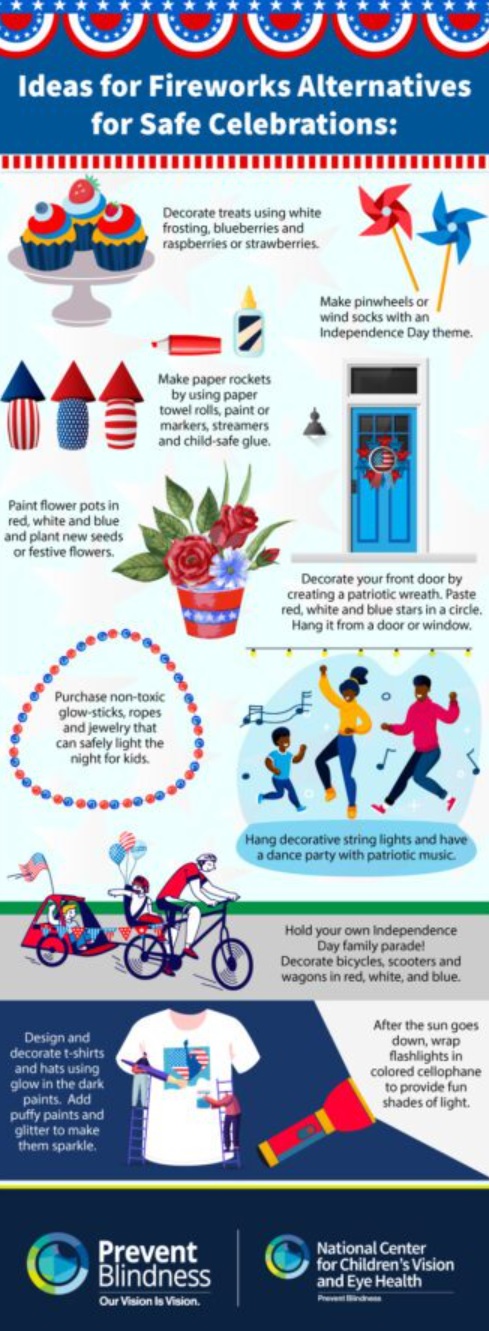Prevent Blindness Advises the Public to Leave Independence Day Fireworks to Licensed Operators in Authorized Displays Only
Prevent Blindness has declared June 28-July 4, 2023, as the Third Annual Fireworks Safety Awareness Week. According to the Consumer Product Safety Commission (CPSC), fireworks devices were involved in an estimated 8,500 injuries treated in U.S. hospital emergency departments around the 4th of July holiday in 2021. And, there were 9 non-occupational, fireworks-related deaths during that time period.
In an effort to help keep families safe and out of the emergency room around the 4th of July holiday, as part of Fireworks Safety Awareness Week, Prevent Blindness seeks to educate the public on the dangers of fireworks through its dedicated webpage, preventblindness.org/fireworks, including free fact sheets and shareable social media graphics. Prevent Blindness also offers fun and creative ideas for fireworks alternatives for safe celebrations.
On June 27, 2023 at 7 p.m. ET, the new “Fireworks- Be Careful!” episode from the “Seeing Eye to Eye: Celebrating Eye Health” Facebook Live series from Blackdoctor.org, will be held. The discussion will feature Rachel Hooper, MD, Clinical Assistant Professor of Surgery in the Section of Plastic and Reconstructive Surgery, Department of Surgery at the University of Michigan School of Medicine, and Stephen McLeod, MD Cornea and Refractive Surgeon, Chief Executive Officer for the American Academy of Ophthalmology and Professor and Chair Emeritus in the Department of Ophthalmology at the University of California, San Francisco. This series is a partnership with Blackdoctor.org, Prevent Blindness, the National Eye Institute, and the Children’s Vision Equity Alliance.
According to the American Pyrotechnics Association, 49 states plus the District of Columbia allow some or all types of consumer fireworks. Illinois and Vermont allow only wire or wood stick sparklers and other novelty items. Massachusetts bans all consumer fireworks.
The CPSC report states that 14 percent of fireworks injuries were to the eyes. According to the American Academy of Ophthalmology (AAO), in the most severe cases, fireworks can rupture the globe of the eye, cause chemical and thermal burns, corneal abrasions and retinal detachment — all of which can cause permanent eye damage and vision loss.
“Have a safe Independence Day this year by leaving the fireworks to licensed professionals,” said Jeff Todd, president and CEO of Prevent Blindness. “And remember to be vigilant about your surroundings, as bystanders can also be injured by errant fireworks and shrapnel.”
For more information on the dangers of fireworks or ideas on how to celebrate safely without fireworks, visit preventblindness.org/fireworks.

